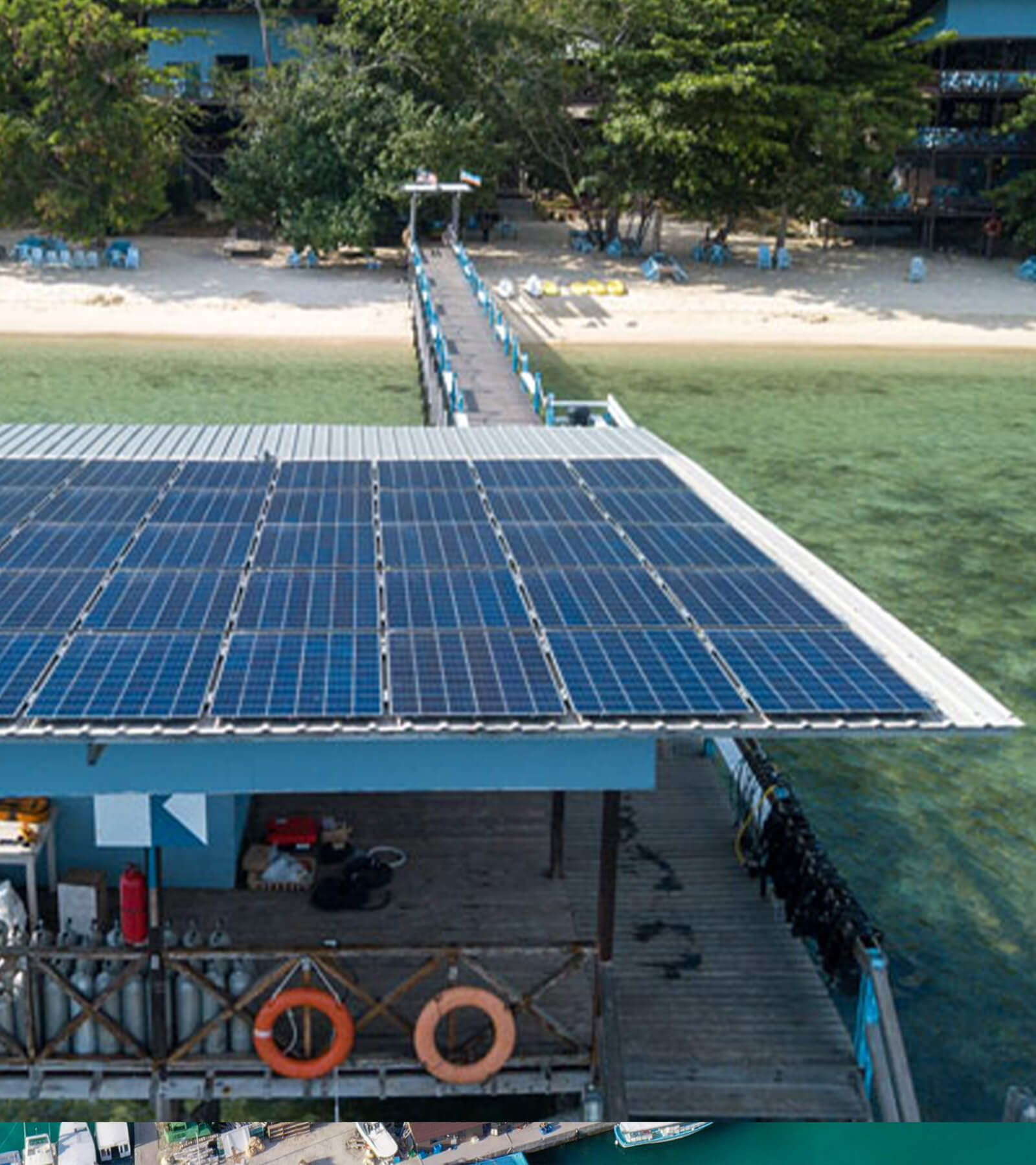
The EU’s E-Bike Boom and the BESS Container Imperative
The EU’s Sustainable and Smart Mobility Strategy (2030) isn’t just a policy—it’s a roadmap to a greener urban future. At its core? A target to put 30 million e-bikes on European roads by 2030, a number that’s already driving explosive growth in shared e-bike fleets (source: European Commission, 2024). But here’s the catch: more e-bikes mean more demand for charging—and the grid can’t keep up alone.
Enter BESS Containers (Battery Energy Storage Systems)—the “energy buffer” that turns solar-powered e-bike hubs from a nice-to-have into a must-have. These containers don’t just charge bikes; they balance energy use, slashing grid peak loads by an impressive 60% (source: EU E-Mobility Report, 2025). Think of them as your fleet’s personal energy manager: they store solar power during the day, avoid draining the grid at peak hours, and keep bikes charged without the “grid stress” headache.
Modular BESS Design + Solar Integration: The Key to Cost-Effective Charging
BESS Containers aren’t one-size-fits-all—and that’s their superpower. Their modular architecture provides unparalleled flexibility, allowing operators to precisely calibrate energy storage capacity in direct proportion to their fleet size. This adaptability is further enhanced when paired with solar canopies, effectively converting what were once substantial charging expenses into significant, tangible savings. Let’s delve deeper into the key performance and cost metrics that underpin the viability of this innovative solution:
2025 Performance & Cost Comparison
The table below outlines a comparative analysis of different BESS Container configurations in tandem with solar canopies, juxtaposed against grid-only charging costs. These figures are based on real-world usage patterns observed within the European shared e-bike market, ensuring their relevance and practical applicability:
| BESS Container Capacity | Solar Canopy Powe | Daily E-Bike Charging Capacity | Cost per kWh (Solar+BESS) | Cost per kWh (Grid Only) | Monthly Savings (50-Bike Fleet) |
|---|---|---|---|---|---|
| 15 kWh | 8 kW | 20 units | €0.15 | €0.30 | €270 (€0.15 x 180 kWh/month) |
| 30 kWh | 15 kW | 35 units | €0.15 | €0.30 | €472.50 (€0.15 x 315 kWh/month) |
| 40 kWh | 20 kW | 50 units | €0.15 | €0.30 | €675 (€0.15 x 450 kWh/month) |
Note: These calculations are predicated on an average e-bike battery capacity of 1.5 kWh and an assumed 3 charging cycles per bike per month, aligning with comprehensive EU shared e-bike usage data. Additionally, the cost savings reflect the cumulative impact of reduced reliance on the grid, taking into account fluctuating electricity tariffs and peak-demand charges.
Syncing with E-Bike Booking Platforms
In the modern era of smart mobility, BESS Containers operate as integral components of a connected ecosystem rather than isolated entities. Leveraging advanced API integrations, these energy storage solutions seamlessly interface with leading shared e-bike platforms such as Dott, Lime, and Tier. This interconnected approach delivers a multitude of benefits, enhancing the overall user experience and operational efficiency:
- Real-Time Availability: Users gain the ability to check the real-time charging availability at e-bike hubs before their arrival, eliminating the inconvenience of arriving at a location only to find no charging spots available.
- Advanced Reservations: Through the platform’s mobile application, users can reserve a fully charged bike in advance, ensuring immediate access upon arrival and minimizing wait times.
- Charging Status Tracking: The integration allows users to monitor the charging progress of their reserved e-bike directly through the app, providing transparency and peace of mind.
This synergy between BESS Containers and e-bike booking platforms effectively mitigates the common frustration of encountering “dead bikes” and significantly boosts fleet utilization rates. By optimizing operational efficiency and enhancing user satisfaction, this innovative approach not only improves the bottom line for operators but also fosters greater user loyalty and retention within the competitive shared mobility market.
Space-Efficient Design & EU Compliance: Making Urban Hubs Feasible
European cities are renowned for their spatial limitations, characterized by narrow streets, congested parking lots, and a dearth of space for new infrastructure development. This urban constraint poses a significant challenge for the integration of large-scale charging solutions for e-bike fleets. Enter BESS (Battery Energy Storage System) Containers, a revolutionary solution designed to address these challenges head-on.
Compact and Containerized Design
BESS Containers offer a space-efficient solution with their compact, containerized footprint. Available in standard 20ft or 40ft units, these containers can be seamlessly integrated into existing urban landscapes. They fit snugly into existing parking bays, making use of otherwise underutilized spaces. Unused lot corners, often overlooked, become viable locations for these containers. Additionally, they can be installed alongside public transit stops, creating convenient charging hubs for e-bike users.
One of the key advantages of this design is the minimal disruption it causes to the urban environment. There’s no need for costly land purchases or lengthy construction projects that can cause significant inconvenience to residents and businesses. The installation process is straightforward: simply place the container, connect it to the grid and solar canopy, and it’s ready to start charging e-bikes. This ease of installation not only saves time and resources but also allows for a quicker rollout of e-bike charging infrastructure across cities.
Rigorous Compliance with EU Standards
While the compact size of BESS Containers is a major selling point, compliance with EU standards is equally crucial for long-term viability and success in the European market. All BESS Containers built for EU e-bike hubs adhere to three critical benchmarks, ensuring they meet the highest regulatory and operational requirements:
| Standard/Directive | Description | Importance | Source |
|---|---|---|---|
| OCPP 2.0.1 | The global standard for charging network communication. It guarantees seamless compatibility with every EU-approved e-bike charger and grid system. This standardization enables efficient communication between the BESS Container, chargers, and the grid, ensuring smooth operation and data exchange. | Ensures interoperability across different e-bike charging systems and grid networks in the EU, facilitating a unified and efficient charging experience. | Open Charge Alliance |
| CE Certification | A mandatory certification that validates the safety, electromagnetic compatibility (EMC), and environmental performance of the product. It ensures that the BESS Container poses no risks to users, the environment, or other electrical devices. | Required for the sale and operation of the product within the EU. It provides consumers and operators with confidence in the product’s safety and reliability. | EU regulatory requirements |
| RED II Directive | Aligns the use of the BESS Container with EU renewable energy rules. By adhering to this directive, the container can take advantage of green incentives and funding opportunities available in the EU. | Enables operators to access financial support and incentives, making the implementation of e-bike charging infrastructure more financially viable and promoting the use of renewable energy sources. | EU renewable energy policy |
In essence, these BESS Containers are not just “plug-and-play” devices; they are “plug-and-comply” solutions. By meeting these stringent EU standards from the outset, they eliminate regulatory barriers for operators, streamlining the process of setting up and operating e-bike sharing hubs across European cities. This combination of compact design and regulatory compliance makes BESS Containers an ideal choice for powering solar-driven fleet charging in EU e-bike sharing hubs.
Technical Advantages & Funding: Why BESS Containers Are a Long-Term Win
BESS Containers aren’t a temporary fix—they’re an investment in sustainable e-mobility that stands the test of time. Their technical specifications are meticulously engineered to ensure long-term viability, making them a future-proof solution for the rapidly expanding e-bike sharing fleets. Here’s a detailed breakdown of their key features:
Technical Prowess: A Deep Dive into BESS Capabilities
- Fast-Charging Compatibility: The BESS containers are designed to support a wide range of charging rates, from 2A to 10A. This significant upgrade cuts down the charging time for most shared e-bike models from the standard 6+ hours (when connected to a regular grid) to a mere 2–3 hours. To illustrate the impact, consider the following comparison:
| Charging Scenario | Charging Rate | Charge Time |
|---|---|---|
| Standard Grid Charging | 1-2A | 6+ hours |
| BESS Container Charging | 2-10A | 2–3 hours |
- Smart Load Balancing: At the heart of the BESS system lies its advanced built-in software. This intelligent system monitors and automatically distributes energy among solar storage, grid input, and bike charging stations. Whether it’s handling peak usage hours during the morning rush or sudden spikes in demand, the load balancing feature ensures a stable power supply and prevents overloads, safeguarding both the equipment and the charging process.
- All-Weather Durability: Engineered to withstand the harshest of climates, the BESS containers come with IP65-rated enclosures. This rating means they are fully protected against dust ingress and can endure powerful water jets from any direction. From the frigid -20°C winters in Nordic countries to the sweltering 40°C summers in Southern Europe, these containers are built for year-round operation, ensuring uninterrupted service for e-bike sharing hubs across the EU.
Financial Incentives: Unlocking EU Funding
The benefits of BESS-equipped e-bike hubs extend beyond technical superiority; they also present a compelling financial case, especially with the availability of EU funding. These hubs qualify for the Connecting Europe Facility (CEF) program, a major initiative by the European Union aimed at enhancing sustainable mobility infrastructure. Under this program, eligible projects can receive funding covering up to 50% of the total project costs (source: CEF Transport Portal). This significant financial support not only makes the adoption of BESS containers a “green choice” but also a financially astute decision, effectively reducing the upfront investment barriers and accelerating the transition to sustainable e-mobility.
Maxbo Solar: Your EU-Focused BESS Partner
At Maxbo Solar (www.maxbo-solar.com), we don’t just manufacture BESS Containers—we build solutions tailored to the unique needs of EU e-bike sharing operators. Here’s what makes us different:
- Pre-Certified for the EU: Every container leaves our facility already compliant with OCPP 2.0.1, CE, and RED II—no extra paperwork, delays, or certification costs for you.
- Scalable to Your Fleet: Whether you need a 15 kWh unit for a small urban hub or a 40 kWh system for a high-traffic location, we customize capacity to match your growth.
- AI-Powered Energy Management: Our proprietary EMS (Energy Management System) uses machine learning to predict demand—like adjusting for rush-hour usage or low solar output on cloudy days—to optimize charging and maximize savings.
- Local EU Support: We have service teams in 8 EU countries (Germany, France, Spain, Italy, Netherlands, Belgium, Sweden, Poland) to handle installation, maintenance, and troubleshooting—no waiting for international support.
I’ve worked with e-bike operators across Europe, from Berlin’s busy city centers to Barcelona’s coastal hubs, and the feedback is consistent: Maxbo’s BESS Containers turn “charging headaches” into “operational wins.” Whether you’re running a 50-bike fleet or scaling to 200+, we’ll help you leverage solar power, cut costs, and hit the EU’s 2030 sustainability goals.
Visit www.maxbo-solar.com today to request a custom quote—or send us an email. Let’s power Europe’s e-bike revolution together.












